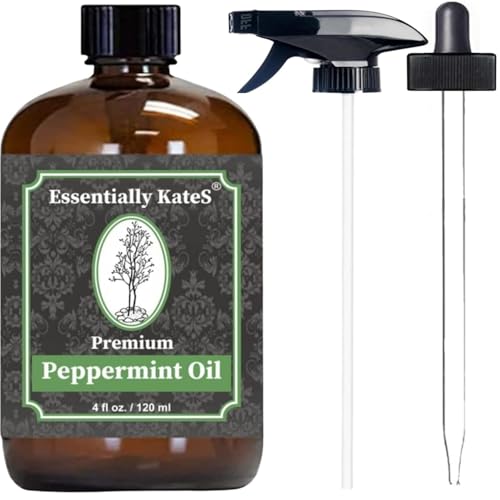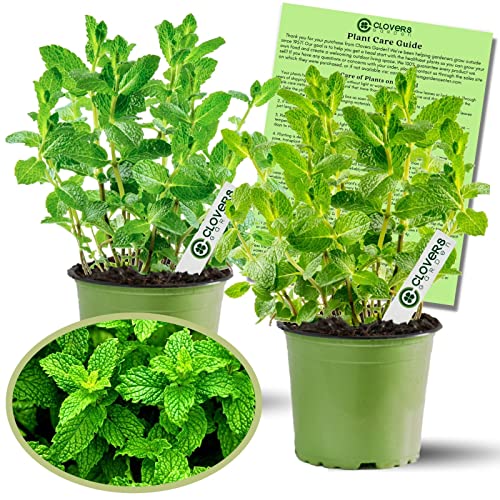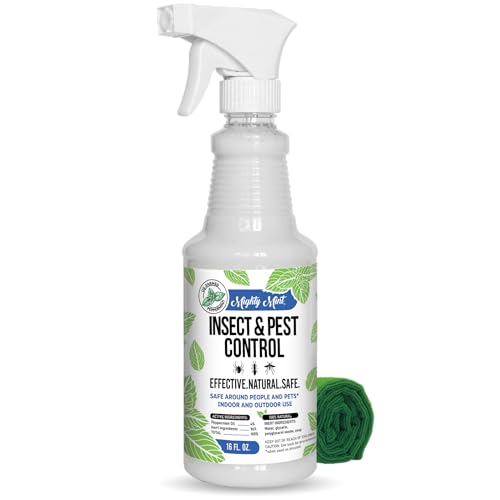I’ve discovered a fresh herb that squirrels hate, but you will adore – and it’s an ideal form of natural pest control
Peppermint is a powerful pest repellent, as long as it is applied in the correct way


Design expertise in your inbox – from inspiring decorating ideas and beautiful celebrity homes to practical gardening advice and shopping round-ups.
You are now subscribed
Your newsletter sign-up was successful
Want to add more newsletters?

Twice a week
Homes&Gardens
The ultimate interior design resource from the world's leading experts - discover inspiring decorating ideas, color scheming know-how, garden inspiration and shopping expertise.

Once a week
In The Loop from Next In Design
Members of the Next in Design Circle will receive In the Loop, our weekly email filled with trade news, names to know and spotlight moments. Together we’re building a brighter design future.

Twice a week
Cucina
Whether you’re passionate about hosting exquisite dinners, experimenting with culinary trends, or perfecting your kitchen's design with timeless elegance and innovative functionality, this newsletter is here to inspire
I love encouraging wildlife into my backyard, squirrels included. But when they start to dig huge holes in my beautiful containers and the raised beds, it's hard not to get frustrated about the damage they cause.
I’ve tried leaving food out for them – a nut grazing table, no less – and adding netting over my more delicate vegetable crops, but they persist. And it’s not their fault; they are merely following their instincts and looking for food.
Natural pest control and eco-friendly deterrents are always my go-to solution when it comes to any pest or problem critter in my yard. As such, I was delighted to discover there is one particular herbal scent that squirrels simply cannot stand – peppermint. By using this scent strategically and in the right form, I’ve found a garden-safe and harm-free method of preventing them from digging up any more of my yard.
Why peppermint works as a squirrel deterrent
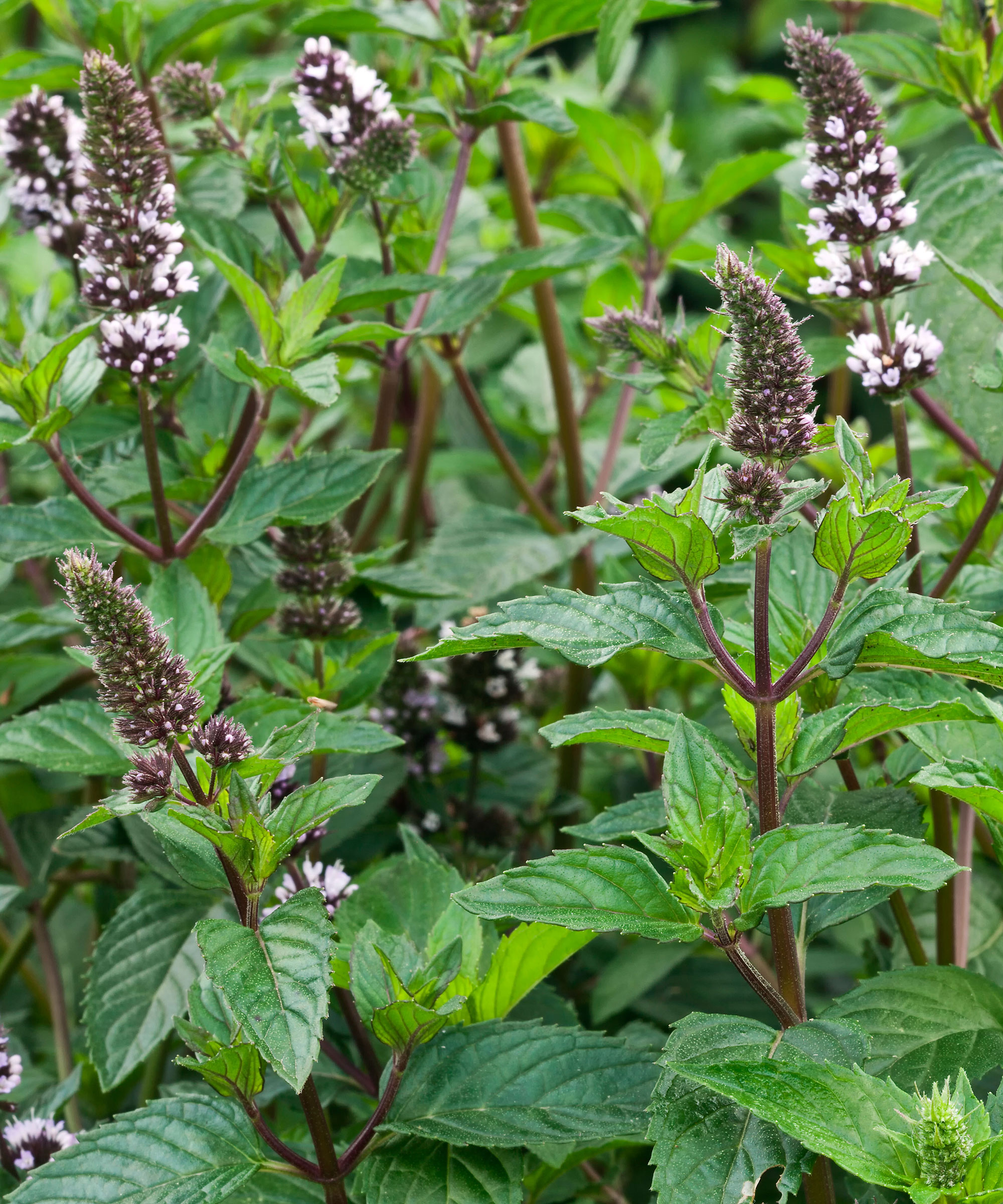
Simply put, squirrels cannot stand the pungent smell of peppermint. There are other scents they don’t like, too, including cayenne pepper and cinnamon, but while you might not enjoy the scent of these strong spices either, peppermint is to us human noses a much more pleasant option.
Peppermint is a simple solution to get rid of squirrels if they're causing trouble in your yard. However, experts stress that squirrels are persistent and can quickly adapt. As such, the peppermint scent needs to be strong and applied daily in order for it not to be a short-term solution.
'Peppermint offers a mild, temporary deterrent, but squirrels quickly adapt, and the scent fades outdoors,' says Ricky Young, owner of Young Pest Control. He says a spray would be more effective than using live plants, and suggests considering an additional physical barrier, such as netting, to ensure plants are fully protected.
How to use peppermint to deter squirrels
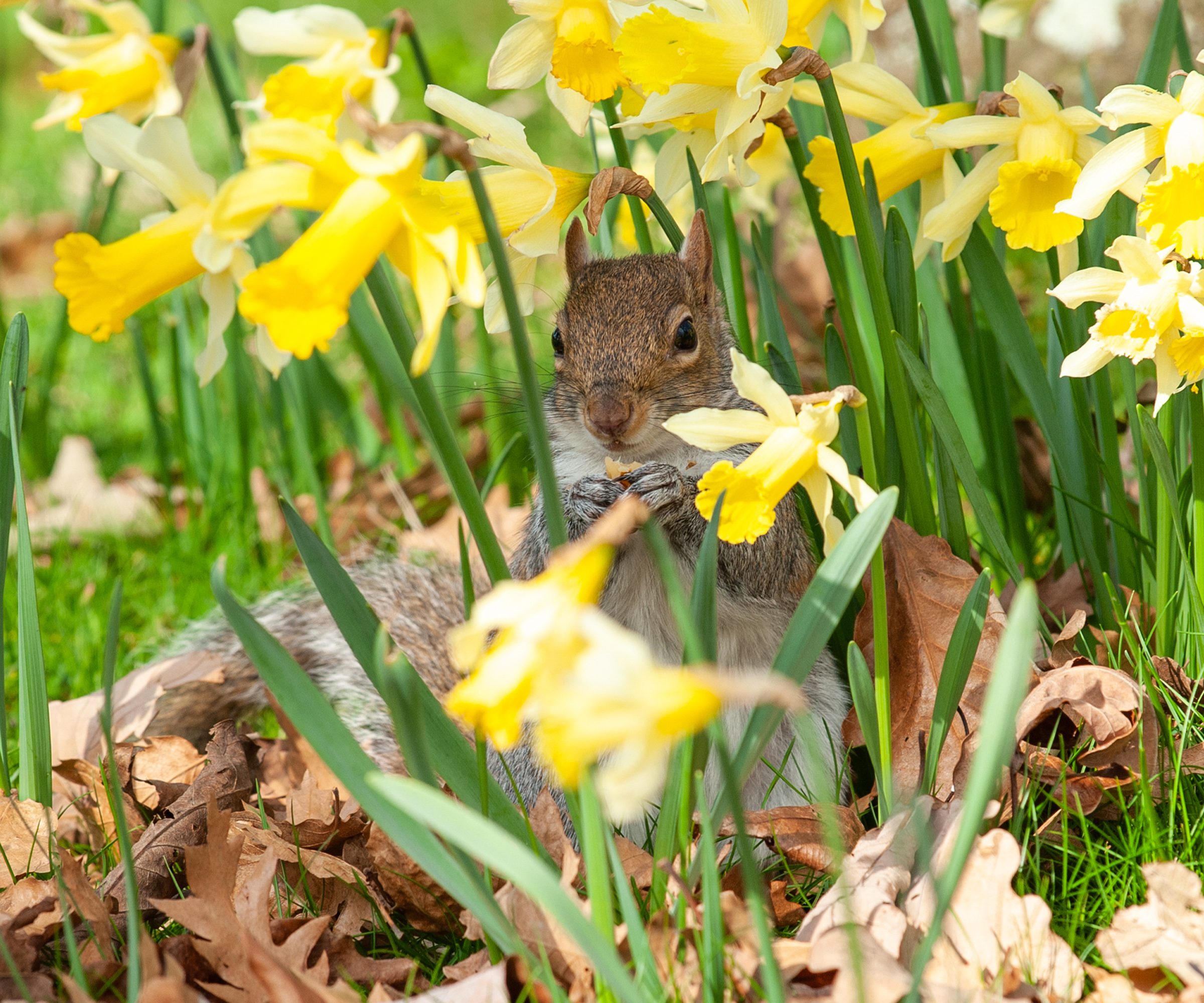
The most effective way to use peppermint to deter squirrels is by applying a spray solution or placing cotton balls soaked in the essential oils around your plants.
Design expertise in your inbox – from inspiring decorating ideas and beautiful celebrity homes to practical gardening advice and shopping round-ups.
But, says Nicole Carpenter, president of Black Pest Prevention, the scent needs to be strong and freshly applied to make a significant difference.
'The scent from the fresh peppermint plant isn’t concentrated or consistent enough to bother squirrels. It might slow them down briefly, especially if they’re just sniffing around, but if you’re going the peppermint route, go with a high-quality spray or oil-soaked cotton balls and reapply often. And even then, rotate the scents, as squirrels get nose-blind fast.'
You can use peppermint essential oil diluted to create a simple spray solution. Spray this around plants, containers, birdfeeders or wherever you are finding squirrels to be a nuisance.
You can also buy a pre-mixed, peppermint spray, such as this one from Amazon, designed to tackle rodents and insects.
As Nicole suggests, consider rotating the scent with the more pungent cayenne pepper, available from Amazon, to create an even stronger barrier.
You could also add live plants around the border of a raised bed, for instance, either within a bed or around the outside perimeter in pots, for a dual defence.

Black Pest Control has been providing effective and affordable pest control in North Carolina since 1940. Nicole, who is president of the company, has nearly two decades of hands-on experience at tackling bugs and infestations in the home and yard.
Shop squirrel deterrents
By combining peppermint with other known squirrel repellents, such as an ultrasonic device, from Amazon, or these natural squirrel repellent balls, also on Amazon, you can shore up a significant defence against these mischievous critters.
You can also plant marigolds around any high-risk plants, for another method that brings yet more joy to us in the garden, and hopefully keep the squirrels at bay.

Rachel is a gardening editor, floral designer, flower grower and gardener. Her journalism career began on Country Living magazine, sparking a love of container gardening and wild planting. After several years as editor of floral art magazine The Flower Arranger, Rachel became a floral designer and stylist, before joining Homes & Gardens in 2023. She writes and presents the brand's weekly gardening and floristry social series Petals & Roots. An expert in cut flowers, she is particularly interested in sustainable gardening methods and growing flowers and herbs for wellbeing. Last summer, she was invited to Singapore to learn about the nation state's ambitious plan to create a city in nature, discovering a world of tropical planting and visionary urban horticulture.
